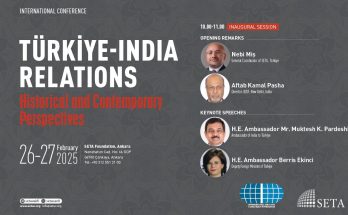Prime Minister David Cameron’s disastrous decision to hold a referendum on the UK’s membership of the European Union (EU) and the manner he went about it reminds one of young Pandora in Greek mythology. ‘Pandora’ means ‘she with all gifts’. Cameron too had all the gifts; at 43, he became Prime Minister in 2010, got re-elected in 2015, and might have even won a third term. But just as Pandora opened the box she was warned not to open, Cameron went for a referendum that common sense would have told him not to go for, or to do it later.
The psychology as applied to any referendum tells us that the voter is not rationally responding to the question asked. Often, the voter uses the occasion to show his anger towards the government of the day. Without resorting to opinion polls, anyone could have told Cameron that a sizable section of the British public was disgruntled and disgusted as: they did not benefit much from the EU and globalization; they lost jobs because emigrants poured in from the rest of the EU; and they got hurt from the cut in welfare spending as demanded by the reckless and ruthless policy of austerity.
Pandora was young and curious, whereas Cameron is old enough to have known the risk of a referendum. He had the option to hold a referendum in 2017, after elections in France and Germany, and after preparing the ground better so that the public could have made a better informed judgment. He also had another option: A referendum seeking approval to renegotiate the treaty with the EU, which he would have easily won and then he could have sought a new contract with Brussels.
So far, only a host of little demons have come out of Cameron’s box: He had to announce his resignation, and his own party is badly divided about the EU and the choice of a new leader. The Labour Party, giving a degree of malicious pleasure to Cameron, is in a worse shape, in fact engaged in an internal conflict; Great Britain might shrink into Little England, if Scotland secedes, Northern Ireland joins Ireland, and if these happens nobody knows what Wales would do.
Cameron erred not only in calling for a referendum. He compounded the error by resorting to scare mongering; the voter was told that, if the UK left EU, it would be an unmitigated disaster; there would be severe budget cuts affecting pensions and the NHS (National Health Scheme). EU leaders in Brussels also joined in by asserting that Brexit will be a disaster of frightful proportions. 10 days before the June 23 referendum, the European Council President Donald Tusk said that if Britons vote to leave the European Union, it could be the beginning of the end for the 28-nation bloc and for western political civilization more generally.
While those who wanted to remain exaggerated the dangers of leaving, the other side painted a picture of perfect bliss: once the UK got rid of the EU albatross around its neck, it will regain its ‘independence’ from the faceless bureaucrats in Brussels; its economy, free from the fetters of the EU, will grow faster; and the EU, considering the importance of the British market and economy, will be compelled to give a good deal to the UK; the unwelcome migrants from Eastern Europe will stop coming; the UK will save GBP 350 million a week it contributes to the EU budget and that money can be used to fund the NHS. (The figure it turned out was grossly exaggerated.)
To recapitulate, it was an unnecessary, unwisely worded, referendum, and both sides dishonestly tried to cheat the voter by making totally false claims. If a second referendum were to be held, the result might be different. But it is difficult to justify the holding of a second referendum. Cameron might also recall with bitterness that in 1975 Prime Minister Harold Wilson, heading a minority government, had won handsomely a referendum on EU with 67 per cent approval.
It is clear that there are no winners, only losers. Starting with the UK: the possibility of Great Britain shrinking into Little England has been referred to earlier. Scotland’s First Minister Nicola Sturgeon has spoken of Scotland remaining within the EU, whether as a part of the UK or as an independent state. She went to Brussels and met Martin Schulz, President of the European Parliament, and Jean-Claude Juncker, President of the EU Commission. It was only an exploratory visit and no concrete decision was expected. But, it is reasonable to conclude that Scotland will do its utmost to remain within the EU and that the EU will find it difficult to refuse.
The market took a hit and USD 3 trillion in paper money was lost in a few days, although recovery has started. The property market in London is likely to collapse. The biggest bank in Singapore, UOB, has stopped giving loans to buy property in London. The long-term outlook is gloomy. The UK has lost its AAA rating. There is a question mark over London’s continuation as the world’s largest financial centre. London now has an ‘EU passport’ to do business in the continent. This is part of the access to the Single Market. Will Britain get such access if it refuses to take in migrants from the EU? If the EU gives a waiver to the UK, others might ask for the same and that will be the beginning of the end of the EU.
The EU too will be a loser in many ways. The aim of the CFSP (Common Foreign and Security Policy), which was initiated in 1999, is to enable the EU to play an important role in foreign policy. The current holder of the post of EU High Representative, Frederica Mogherini of Italy, chaired the nuclear negotiations with Iran. With the UK’s exit, the clout of the EU will naturally diminish in dealing with such issues.
Another probable implication is that without the UK to pull the EU towards US policy, the EU might look at some issues more in terms of its own interest rather than the need to align with the US. For example, the economic sanctions against Russia over Ukraine hurt the EU much more than the US. The EU sanctions against Russia are to be reviewed this month. It will be interesting to see what the EU does in this regard.
In a recently circulated white paper on defence, Mogherini states that “While NATO exists to defend its members — most of which are European — from external attack, Europeans must be better equipped, trained and organized to contribute decisively to such collective efforts, as well as to act autonomously if and when necessary.” Brexit will definitely make it more difficult to “act autonomously if and when necessary.”
Brexit will also compel the EU to look into the mirror and introspect. Has the EU pursued the agenda of broadening without waiting for consolidation? Do Hungary or Poland attach the same importance to the rule of law which the Lisbon Treaty calls for? Does the ‘ever closer union’ make sense now? Should there be a ‘two speed’ EU, with a core group pursuing deeper integration and the rest remaining where they are, as happened when the Euro was introduced? How to make Brussels look less bureaucratic and distant from the concerns of the ordinary people? How can there be a single currency without a single treasury? Did it make sense to impose austerity on Greece? These are some of the questions requiring reflection, calm, long, and deep.
In terms of geo-economics, the rise in the value of the US dollar and the Japanese yen will hurt their economies, Japan more than the US. Obama has drawn attention to the adverse global impact of Brexit. The OECD had calculated before the referendum that, by 2020, the UK will lose GBP 2020 per household. The EU has grown at 1.68 per cent per annum from 1996 to 2016, with a record low of minus 5.4 per cent in the first quarter of 2009. The rate is 1.8 per cent for the first quarter of 2016. The EURO zone has fared much worse with 0.36 per cent from 1995 to 2016 and a record low of minus 3 per cent in the first quarter of 2009. The continuing uncertainty will badly impact the UK, EU, and the EURO zone.
For long, the Indian corporate sector has found a comfort zone in the UK which has provided them a gateway to the EU. India will now need to enlarge its presence in the continent, with FICCI and CII opening more offices. Indian banks will need to have more direct linkages with European banks without going through London. More young Indians should learn European languages. India will find it easier to deal with a Little England if Great Britain shrinks eventually as the imperial baggage will disappear.
Will Brexit beget Frexit (France), Nexit (Netherlands), Italexit (Italy) and other exits? 30 per cent of Germans and 47 per cent of Austrians do not like the EU. If the EU had shown indulgence and agreed to the UK’s retaining access to the Single Market without the responsibilities that go with it, the demand for a referendum in other countries would have gathered momentum.
Technically, the Brexit vote does not amount to exit from the EU. Divorce has not taken place. The notice for divorce (Article 50) might not lead to divorce. There is a spectrum of possible scenarios in the unfolding future. Let us look at the best of these:
The new British Prime Minister invokes Article 50; negotiations go back and forth; EU will signal toughness; UK will play for time; after the elections in France and Germany, there will be new leaders there; UK would have tasted the bitterness of uncertainty standing in the way of normal business; when both UK and EU have sobered down, and EU has started introspection, it might be possible for Brussels to give some concessions to the UK to save face; the two sides can announce that the UK has withdrawn its demand for separation and celebrate. If need be, another referendum can be held to support the decision.
If the above scenario does not work out and UK and EU have an acrimonious divorce, we are witnessing a Shakespearian tragedy in slow motion. Brexit will be followed by a few other exits. In that case, the British exit will signal the beginning of the end of the EU, which might revert to a Common Market instead of being a Single Market.
Courtesy:IDSA
Author Profile
- India Writes Network (www.indiawrites.org) is an emerging think tank and a media-publishing company focused on international affairs & the India Story. Centre for Global India Insights is the research arm of India Writes Network. To subscribe to India and the World, write to editor@indiawrites.org. A venture of TGII Media Private Limited, a leading media, publishing and consultancy company, IWN has carved a niche for balanced and exhaustive reporting and analysis of international affairs. Eminent personalities, politicians, diplomats, authors, strategy gurus and news-makers have contributed to India Writes Network, as also “India and the World,” a magazine focused on global affairs.
Latest entries
 India and the WorldJune 26, 2025Operation Sindoor: India Sheds Restraint, Rediscovers Utility of Force
India and the WorldJune 26, 2025Operation Sindoor: India Sheds Restraint, Rediscovers Utility of Force India and the WorldJune 23, 2025BRICS summit in Rio to focus on Global South, local currency trade
India and the WorldJune 23, 2025BRICS summit in Rio to focus on Global South, local currency trade Africa InsightsJune 11, 2025New Opportunities in India-Japan Cooperation in Africa
Africa InsightsJune 11, 2025New Opportunities in India-Japan Cooperation in Africa India and the WorldMay 23, 2025Post-Operation Sindoor, India reminds Turkey, China of concerns and sensitivities
India and the WorldMay 23, 2025Post-Operation Sindoor, India reminds Turkey, China of concerns and sensitivities







